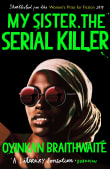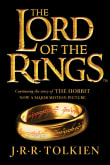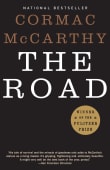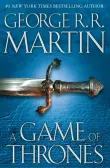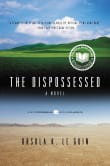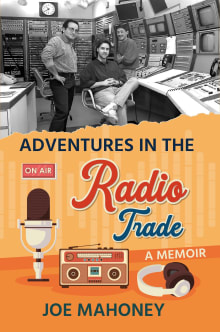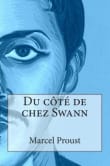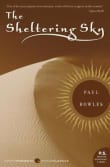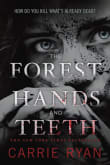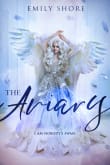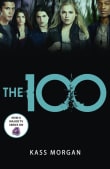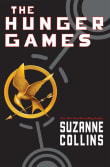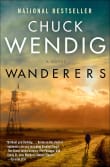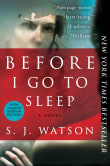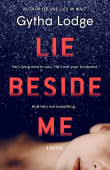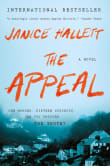The Handmaid's Tale
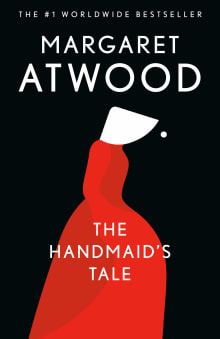
Book description
** THE SUNDAY TIMES NO. 1 BESTSELLER **
**A BBC BETWEEN COVERS BIG JUBILEE READ**
Go back to where it all began with the dystopian novel behind the award-winning TV series.
'As relevant today as it was when Atwood wrote it' Guardian
I believe in the resistance as I believe…
Why read it?
37 authors picked The Handmaid's Tale as one of their favorite books. Why do they recommend it?

I loved Margaret Atwood’s book, a cautionary story that shows how the extreme distortion of religious ideologies can lead to devastating outcomes. Offred endures unimaginable hardship under the guise of religious piety, but the reality is much more twisted.
Her determination to survive in such harrowing circumstances is inspiring and challenges us to reflect on our views and norms.
From S.'s list on exploring crises of faith.

I first read this book many moons ago. I love Margaret Atwood’s writing, and this book just jumps out of the page as a warning to everyone. I read it again after the Hulu series came out, and it has not lost its power. Could this really happen?
Well, after the overturning of Roe vs Wade, it seems that it really could. Infertility is rising, reproduction is falling, and women’s reproductive rights are being steadily eroded. Atwood did say at the time that nothing in the book had not already happened somewhere in the world, but I don’t think anyone…
From Kim's list on mothers in media, culture and society.

From its first publication, this was my favorite book—a post-apocalyptic look at a world where women have lost their rights and are siloed into specific gender roles. I held my breath when the protagonist, Offred, finds ways to rebel, despite the risk of any visible state protest.
I love the complexity of the plot, where women sometimes help each other and other times join the persecution of women for self-survival. And I couldn’t read fast enough to see if Offred, riddled with fear yet finding her core of strength, finds a way out.
It’s a scary read, as it foretells…
From Dianne's list on Canadian novels with intriguing female characters.
If you love The Handmaid's Tale...

This is the novel that inspired whole shelves in the bookshops of recent women’s dystopian fictions (note how often their covers mimic the red and white of the handmaid’s uniform!)
I write about Atwood a lot, and I'm most often asked to talk about this book. No matter how many times I return to The Handmaid’s Tale, I find something new to think about.
Atwood took what was an often male-focused genre (think George Orwell’s 1984) and reimagined it from a woman’s perspective. For me, the most terrifying thing about Offred’s story is how ordinary she is –…
From Fiona's list on dark, dystopian futures written by women.

Reading this novel again, almost forty years after its first publication, reminds me of the genius of its author, Margaret Atwood, in her portrayal of women's inner lives.
In this book, we see sisters of a different kind – divided women, repressed by a brutal state, controlled by fear and enslavement. It is a dystopian novel, yet so much of the story is recognizable to us as credible representations of the past, present, and future sufferings of women. The novel is a modern horror, of sorts – but at the same time, it is a testament of hope and resistance,…
From Isabel's list on sinister sisters and strange sisterhoods.

As a mother, I could relate to June Osborne’s feelings of panic and rage when her family was pursued and her child ripped from her arms. Someone taking or hurting my kids would be my worst nightmare. I am definitely a protective Mama bear and no enemy could stop me from doing whatever I had to – to rescue my child. That is one of the main reasons this book resonated with me.
The rest of the storyline is not too far fetched these days, with politics as they are. In a world where a few rich have so much…
From Teresa's list on thriller/suspense escapism with strong female protagonists, full of grit, sass, and humour.
If you love Margaret Atwood...

Reading this book in college was a powerful experience for me, as it highlights how easy it is for fascism to take over with a very personal narrative style that emphasizes the humanity of the main character.
I love that this book is written in first-person point of view from a “handmaid’s” perspective, as it makes the story especially engaging and puts the reader in Offred’s shoes. While the subject matter can be difficult to read at times, I believe that this book is important for every new adult seeking to understand how they can play a role in protecting…
From Ellie's list on dystopian books every twenty-something should read.

Having read this book when I was 22, it helped shape my fear of the danger of complacent societies. Simply but powerfully written, its first-person narrative creates a sense of claustrophobia, a glimpse into the isolating and dehumanizing life of a handmaid.
Through Offred, the traumas she experiences, and the people she interacts with the whole world of Gilead springs to scary life. While reading the book, it struck me that nothing was totally made up. Every incident in the book was derived from history. These things had already happened, and they could happen again. It showed me that victory…
From Jawahara's list on transporting you across time and place.

Since reading this story in high school, I’ve revisited it dozens of times. It never loses its impact.
This classic dystopian novel envisions a society where women are subjugated and treated as property, primarily for reproduction. It's a powerful exploration of women's loss of agency in a patriarchal regime.
From Rae's list on reproductive freedom and bodily autonomy.
If you love The Handmaid's Tale...

Margaret Atwood’s seminal The Handmaid’s Tale has been on my “to read” list since it was published in 1985. Almost forty years later, I finally cracked the cover.
Of course, I knew the premise. I’d also seen parts of the Hulu show based on the text, but digging into the source material was far more rewarding. Atwood’s descriptive and plotting skills are a crash course in novel writing; reading The Handmaid’s Tale has—at least temporarily—cured the case of writer’s block I’ve struggled with since 2020.
The story is also a relevant and thoroughly worthwhile read, especially with the current state…
Want books like The Handmaid's Tale?
Our community of 12,000+ authors has personally recommended 100 books like The Handmaid's Tale.




